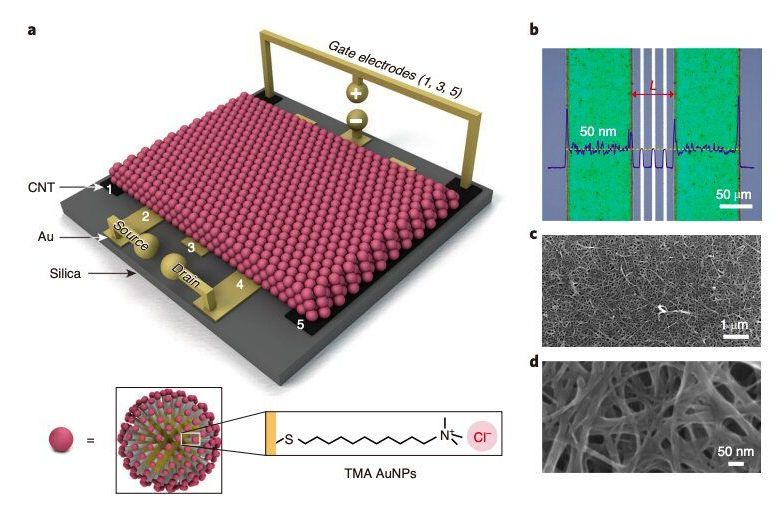Transistors, devices that can amplify, conduct or switch electronic signals or electric current, are key components of many electronics on the market today. These devices can be fabricated using a variety of inorganic and organic semiconducting materials.
Metals are generally considered unsuitable for fabricating transistors, as they screen electric fields and thus make it difficult to realize devices with tunable electrical conductivity. A possible way to create electronic components based on metals is to use gradients of counterions in films of metal nanoparticles functionalized with charged organic ligands.
In the past, engineers have successfully used this strategy to create a variety of devices, ranging from resistors to diodes and sensors. Nonetheless, modulating the electrical conductivity of these devices has often proved to be very challenging.
